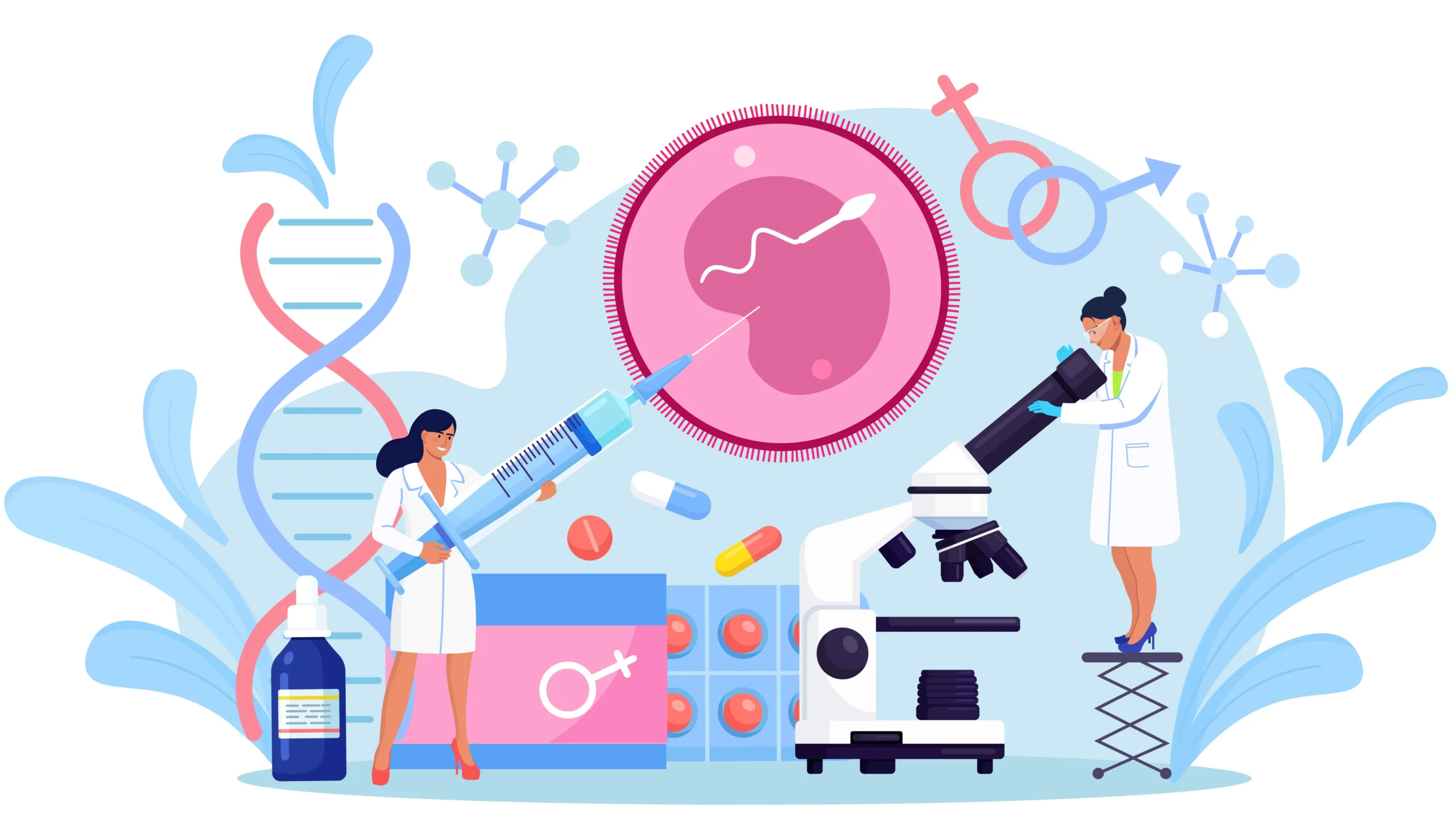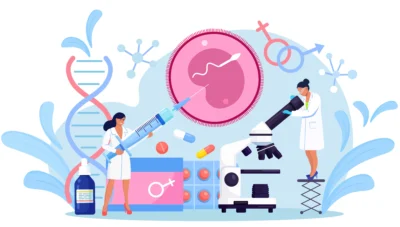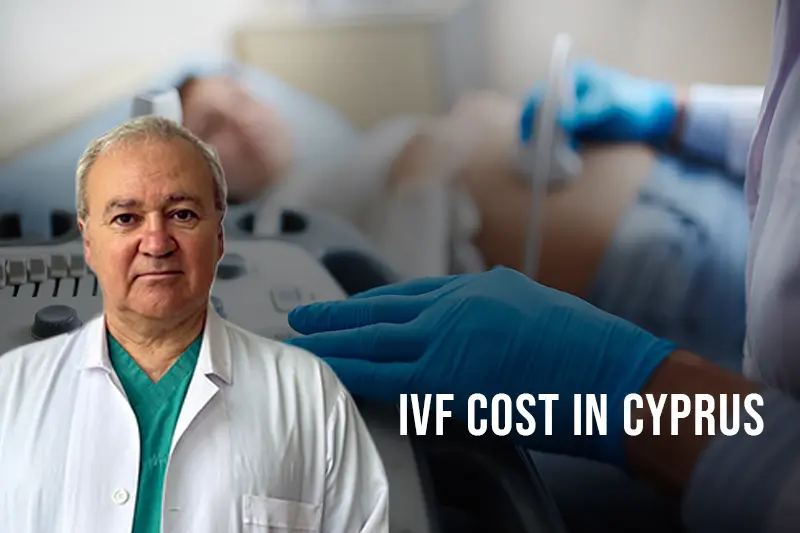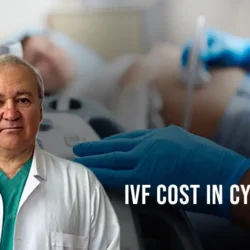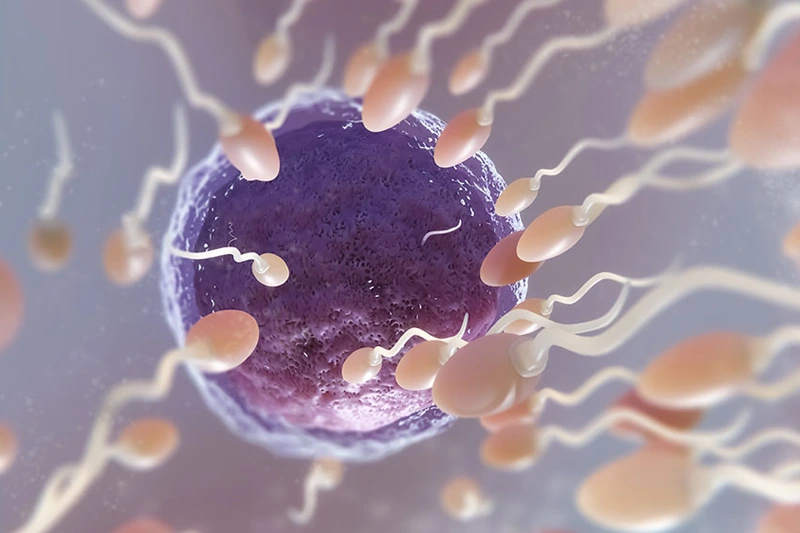ICSI vs IVF: What’s the Difference?
In the world of fertility treatments, IVF (In Vitro Fertilization) and ICSI (Intracytoplasmic Sperm Injection) are two of the most common procedures. While they share similarities, they are distinct in their methods and are recommended based on specific needs. Understanding the differences between IVF and ICSI is essential for couples and individuals exploring fertility treatment options.
What is IVF?
IVF, or In Vitro Fertilization, is a process where eggs are fertilized by sperm outside the body. This treatment is widely used for couples facing various fertility challenges. The steps in a traditional IVF cycle are:
- Ovarian Stimulation: Fertility medications stimulate the ovaries to produce multiple eggs.
- Egg Retrieval: Eggs are extracted from the ovaries using a thin needle under mild sedation.
- Fertilization: In a lab, the retrieved eggs are exposed to sperm, allowing fertilization to occur naturally.
- Embryo Development: Fertilized eggs grow into embryos, which are monitored for several days.
- Embryo Transfer: A selected embryo is placed into the uterus with the hope of implantation and pregnancy.
IVF is a commonly recommended treatment for couples experiencing unexplained infertility, blocked fallopian tubes, or issues related to ovulation.
What is ICSI?
ICSI, or Intracytoplasmic Sperm Injection, is a specialized form of IVF primarily used in cases of male infertility. In an ICSI procedure, instead of allowing sperm to naturally fertilize the egg, a single sperm is directly injected into the egg. The main steps in ICSI are similar to IVF, with a few differences in the fertilization process:
- Ovarian Stimulation and Egg Retrieval: Just like IVF, medications stimulate the ovaries to produce eggs, which are then retrieved.
- Sperm Selection: A single, healthy sperm is chosen for each egg.
- Injection: The selected sperm is directly injected into each mature egg, promoting fertilization.
- Embryo Development: The embryos are cultured and monitored similarly to IVF.
- Embryo Transfer: A viable embryo is then transferred into the uterus.
ICSI is particularly effective for couples where male infertility factors play a role, such as low sperm count, poor sperm motility, or abnormal sperm morphology.
Key Differences Between IVF and ICSI
While IVF and ICSI are similar in their goals, they differ in several ways:
- Fertilization Technique: In IVF, eggs and sperm are combined, allowing sperm to fertilize an egg naturally. ICSI bypasses this natural fertilization by injecting sperm directly into the egg.
- Male Infertility Factor: IVF may not be as effective in cases of severe male infertility. ICSI, however, is specifically designed to address male fertility issues by directly controlling fertilization.
- Success Rates: Both methods are effective, but ICSI tends to have higher success rates for male-factor infertility since the fertilization step is more controlled.
- Cost and Time: ICSI is typically more expensive due to the specialized equipment and precision required to inject a single sperm. Additionally, ICSI requires extra steps, which may add time to the procedure.
When is IVF Recommended?
IVF is often recommended when:
- There’s Unexplained Infertility: When there is no identifiable cause of infertility, IVF can improve the chances of conception.
- Tubal Blockage or Damage Exists: IVF bypasses the fallopian tubes, making it a good choice for those with tubal issues.
- Ovulation Disorders Are Present: For those with irregular ovulation, IVF, combined with ovulation-stimulating medications, can increase the chances of conception.
- There’s Advanced Maternal Age: As a woman’s fertility declines with age, IVF can help increase the likelihood of pregnancy.
- Endometriosis: For women with endometriosis, IVF may improve their chances of conception.
When is ICSI Recommended?
ICSI is recommended primarily when male infertility factors are present, including:
- Low Sperm Count: If there are not enough sperm to fertilize an egg, ICSI can make fertilization possible.
- Poor Sperm Motility: For sperm that cannot swim effectively, direct injection into the egg ensures fertilization.
- Previous Fertilization Failures: If previous IVF cycles have failed at the fertilization stage, ICSI may improve outcomes.
- Sperm Morphology Issues: Abnormal sperm shape can make it difficult for sperm to penetrate the egg naturally, which ICSI can bypass.
Advantages and Disadvantages of IVF and ICSI
IVF Advantages:
- Less Invasive for Sperm: IVF allows sperm to fertilize an egg naturally, which may be preferred for couples without severe male infertility.
- Lower Cost Compared to ICSI: Traditional IVF procedures are generally less costly than ICSI due to fewer specialized requirements.
IVF Disadvantages:
- Lower Success for Male Infertility: IVF alone may not address issues related to low sperm count or poor sperm quality effectively.
ICSI Advantages:
- Addresses Male Infertility Directly: By selecting and injecting a single sperm, ICSI overcomes challenges like low sperm count and poor motility.
- Higher Fertilization Rate: The controlled fertilization process results in a higher rate of fertilized eggs, especially in cases of male infertility.
ICSI Disadvantages:
- Higher Cost: ICSI is more expensive due to the additional technology and time involved.
- Potential Risks to Embryos: Direct injection of sperm could introduce risks, although these risks are generally minimal.
Success Rates: ICSI vs. IVF
Success rates vary depending on multiple factors, including age, overall health, and infertility causes. For couples with male infertility, ICSI success rates are typically higher than IVF alone. However, for those without male fertility issues, IVF can yield equally successful outcomes. Both treatments benefit from advances in fertility technology, and clinics like Cyprus IVF Hospital specialize in providing tailored treatment plans to maximize success.
| Factor | IVF Success Rate | ICSI Success Rate |
|---|---|---|
| ✅ Under 35 years | 45-55% per cycle | 50-60% per cycle |
| ✅ Ages 35-37 | 35-45% per cycle | 40-50% per cycle |
| ✅ Ages 38-40 | 25-35% per cycle | 30-40% per cycle |
| ✅ Over 40 years | 10-20% per cycle | 15-25% per cycle |
| ✅ Unexplained infertility | High success; suitable for many cases | Used if IVF alone has failed previously |
| ✅ Male infertility | Success varies; limited for male factor | High success in cases with low sperm count, poor motility, or abnormal shape |
| ✅ Previous IVF failure | Depends on other fertility factors | Often recommended if fertilization issues in previous IVF cycles occurred |
| ✅ Overall Fertility Success | Effective for many infertility causes | Effective especially for male infertility |
This table can help guide patients at Cyprus IVF Hospital in understanding which fertility treatment may be most effective based on specific age and fertility factors.
Choosing the Right Treatment: IVF or ICSI?
Choosing between IVF and ICSI depends on your unique fertility circumstances. Consult a fertility specialist to assess factors like sperm count, sperm motility, egg quality, and other individual considerations. Clinics like Cyprus IVF Hospital provide personalized guidance, using diagnostic tests and medical expertise to recommend the best course of action.
ICSI vs IVF
In summary, while both IVF and ICSI aim to help individuals and couples achieve pregnancy, they differ in their fertilization methods and are suited to different fertility challenges. IVF offers a less invasive fertilization process ideal for unexplained infertility, tubal issues, and advanced maternal age, while ICSI is an effective solution for overcoming male infertility factors.
If you’re considering fertility treatment and want to understand which method might be right for you, reach out to Cyprus IVF Hospital for expert consultation. Our experienced team will provide a thorough assessment, personalized guidance, and the latest fertility technology to help you on your journey to parenthood. Whether IVF or ICSI is right for you, Cyprus IVF Hospital is dedicated to helping you achieve the best possible outcome.
